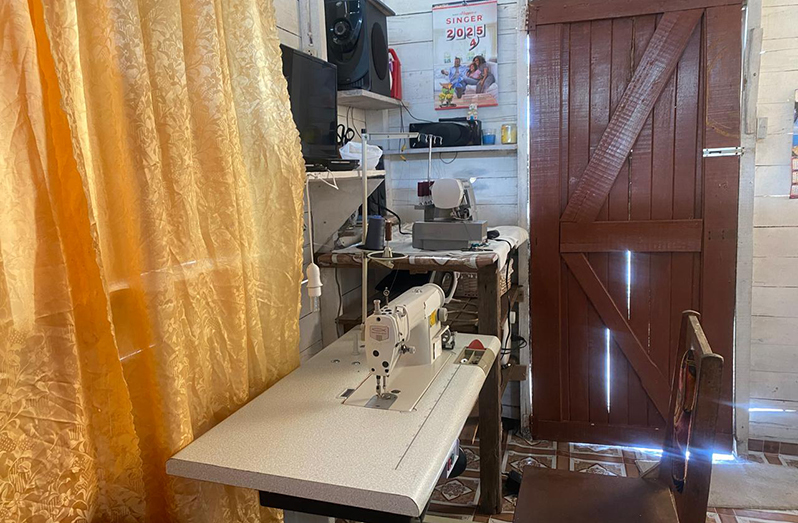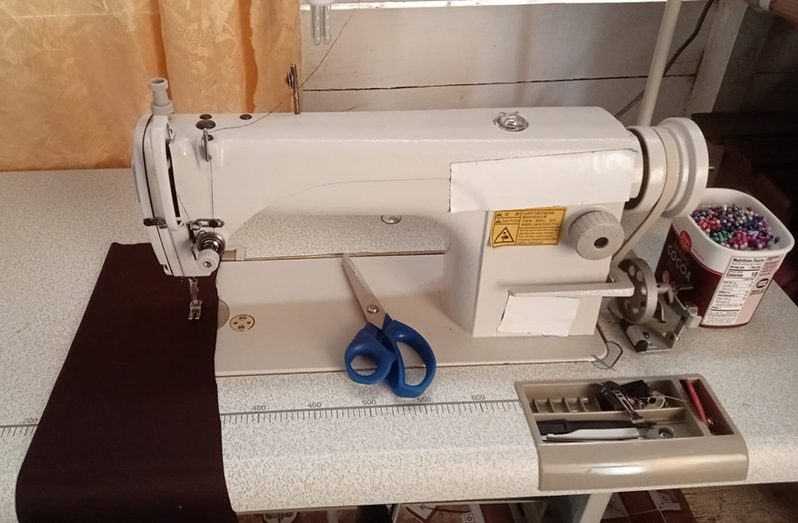A single mother’s journey to financial independence
FALLY HARRIS was a full-time cook, but the location of her job kept her away from her children, and she wanted to be closer to them. As a result, she was forced to return home to South Amelia’s Ward, Linden, where securing permanent employment proved to be difficult.
She worked for two years at a mining camp in Aranka before deciding to quit and return home to her four children, including a baby boy. Harris told Pepperpot Magazine that, as a single parent, finding a job is not easy, especially in that region.
However, she was determined to put food on the table for herself and her children, including three minors. One day, she woke up and decided to follow her instincts. Along with a friend, and after securing a letter, she visited Food for the Poor (FFP) Guyana headquarters in Festival City, Georgetown. Upon arrival, the security guard instructed her to hand in the letter and leave.
But she was not discouraged. Instead, she asked to speak to someone from the office and patiently waited until FFP Chief Executive Officer, Andrea Benjamin, was available to meet with her. Harris recounted how she shared her story with Ms. Benjamin, who was eager to assist. After lunch, she was presented with a brand-new, heavy-duty sewing machine.
“I knew how to sew, and I realised that if I had a sewing machine—one that worked well—I would be able to utilise my skill and earn an income to provide for my home and children,” she said.
She explained that she previously owned a second-hand plastic sewing machine, but it did not function well, preventing her from using it effectively. Her dream of owning a brand-new sewing machine finally became a reality when she received one from FFP.
Harris stated that having the sewing machine empowered her to become independent. Taking things a step further, she used her government-issued cash grant of $100,000 to purchase an overlock sewing machine.

“I used that cash grant money and borrowed some additional funds to buy the other sewing machine. This way, I could complement the one I got from FFP and equip myself with the right machines to operate my small sewing business from home,” she explained.
Harris set up her sewing machines in a small corner of her living room, as her wooden house is not very spacious. She then began taking on sewing work as a seamstress.
“I am getting work, but it is not an everyday job. A few people in the community visit me to have school uniforms made,” she said.
To supplement her income as a seamstress, she is actively seeking part-time work to meet her daily expenses. Harris shared that she receives monthly financial support from the father of her children, but it is not enough to cover household expenses.
“I am aware that things take time. It is a gradual process to set up a business and see it grow. But being a seamstress isn’t a big earner because customers don’t come often, so I need to find another job,” she said.
Additionally, she has already secured concrete blocks to build a small shop to house her sewing machines. This will allow her to serve customers without having them enter her home. Harris emphasised that she will not give up because she has children to support and debts to pay. She hopes to attract a steady flow of customers so she can earn a sustainable income as a self-employed individual.
In the meantime, she continues to search for job opportunities in Linden and remains hopeful that something will materialise soon. Since leaving her full-time cooking job in the interior, she has had to start over from scratch. Her determination to earn an income led her to FFP, where she was able to set up a small business.
Originally from Moblissa, Soesdyke/Linden Highway, Harris also spent some time living in Port Kaituma, Region One, her mother’s home village, before settling in Amelia’s Ward. She was born at the Georgetown Public Hospital Corporation (GPHC) when her family resided in Albouystown.
Now 39 years old, she acknowledges that things are slow but remains optimistic that her situation will improve with time. She dreams of being able to sustain herself fully as a stay-at-home seamstress. Additionally, Harris plans to replant her kitchen garden, as neighbouring goats completely destroyed her once-thriving crops.
One of her four children, a 23-year-old daughter, is employed and contributes to the household.












